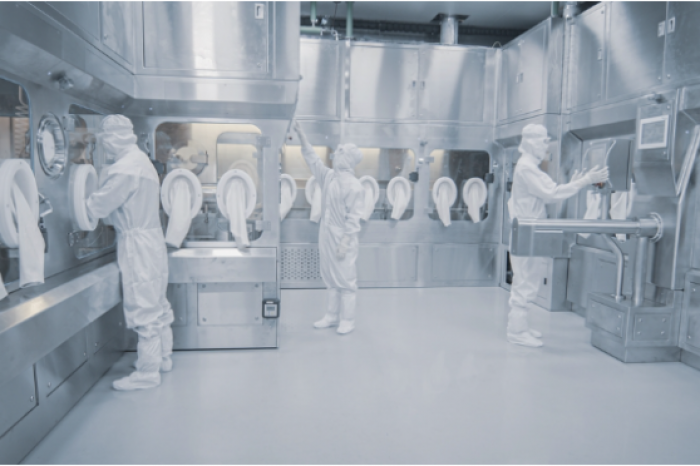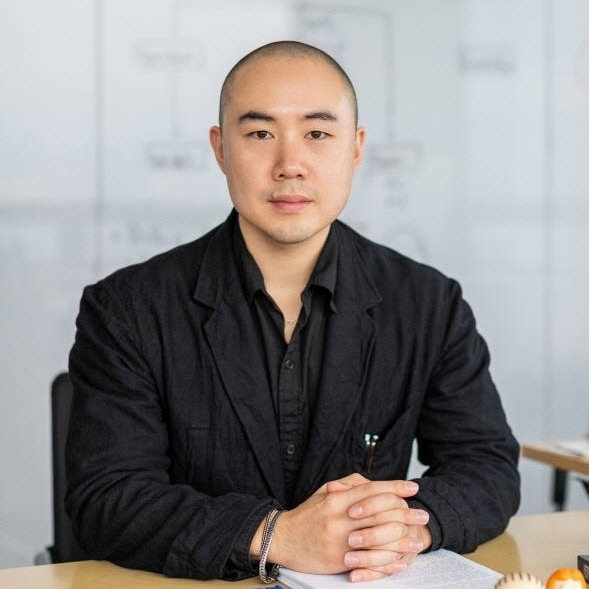Bio & Pharma
Boryung, Axiom Space to set up JV to explore space healthcare options
The S.Korean pharmaceutical firm hopes to use its American partner’s space station as a clinical trials lab for medicine in space use
By Mar 21, 2023 (Gmt+09:00)
3
Min read
Most Read
LG Chem to sell water filter business to Glenwood PE for $692 million


Kyobo Life poised to buy Japan’s SBI Group-owned savings bank


KT&G eyes overseas M&A after rejecting activist fund's offer


StockX in merger talks with Naver’s online reseller Kream


Mirae Asset to be named Korea Post’s core real estate fund operator



South Korea's Boryung Corp., just decades ago a mom-and-pop pharmacy, will bring its healthcare expertise to space with Axiom Space Inc., a US commercial space station developer, dreaming to become a pioneer in the market for healthcare services and medicine customized for space use.
“Axiom and Boryung yesterday agreed to set up a joint venture in Korea,” Kim Jung-gyun, chief executive officer and board chairman of Boryung, announced at an annual shareholders’ meeting on Tuesday.
The two companies will mainly work together to explore and develop local businesses that could be applied to Axiom’s space station in low Earth orbit, Kim added.
Axiom Space was awarded $140 million in January 2020 by the National Aeronautics and Space Administration (NASA) to build a series of modules that will be docked to the International Space Station (ISS) in low Earth orbit. The space infrastructure developer will later operate its modular station as a free-flying station.
The Korean company last year invested a total of $60 million in Axiom Space to own more than 2.5% stake.
The Boryung-Axiom JV is one of their business partnership projects, and they plan to expand their partnership beyond Korea, according to Kim.
Boryung is expected to use Axiom Space’s low-Earth-orbit space station as a research and development facility to test new space-based healthcare products and services.
The two partners will come up with a detailed plan for the Korean JV after fine-tuning its tasks, according to the Korean company. But
OWNER FAMILY'S SPACE AMBITION
Founded as a mom-and-pop pharmacy in Seoul in 1957, Boryung is now a major pharmaceutical company in Korea.
Its journey to find a new business opportunity in space began with its CEO Kim, who is also the grandson of Boryung founder Kim Seung-ho.

The third-generation chief of the family-owned pharmaceutical business group has picked space-related healthcare projects as one of the company’s new growth drivers after he visited NASA’s Johnson Space Center a few years ago.
In December last year, it hosted the Care in Space Challenge (CIS) jointly with Axiom Space and Starburst Aerospace, an aviation accelerator, to explore healthcare technologies to address astronauts’ health issues in space.
The winners of the first space healthcare startup accelerator program were awarded an equity investment of $100,000 and allowed to join an accelerator program to nurture their ideas into real businesses.
The event was attended by representatives from NASA and Harvard University.
The second event this year is expected to be expanded into a bigger one, dubbed the Human in Space Challenge (HIS), and MIT will also join in this one.
But the owner’s space ambition met opposition from shareholders who doubt the feasibility of the new business without concrete plans.
“No one could come up with a concrete funding plan for a novice business idea that is also the world’s first,” said Kim, adding that the company will actively review share cancellation to secure funds.
The Korean pharmaceutical major on the same day unveiled a target to earn 61 billion won ($46.7 million) in operating profit this year on sales of 810 billion won.
Kim projected the company’s operating profit would hit 200 billion won in 2026 with sales of 1 trillion won.
The company also plans to launch a generic version of FARXIGA (dapagliflozin), AstraZeneca’s top-selling type-2 diabetes treatment, immediately after its patent expires in Korea in April.
It will also actively seek to acquire legacy brands’ medicines with expired patents.
Boryung shares ended up 0.5% at 8,410 won on Tuesday.
Write to Ji-Hyun Lee at bluesky@hankyung.com
Sookyung Seo edited this article.
More to Read
-
 Bio & PharmaBoryung holds Care-in-Space Challenge in US for space healthcare startups
Bio & PharmaBoryung holds Care-in-Space Challenge in US for space healthcare startupsDec 09, 2022 (Gmt+09:00)
1 Min read -
 Bio & PharmaBoryung takes 'health is wealth' to whole new level – space
Bio & PharmaBoryung takes 'health is wealth' to whole new level – spaceApr 20, 2022 (Gmt+09:00)
1 Min read
Comment 0
LOG IN


